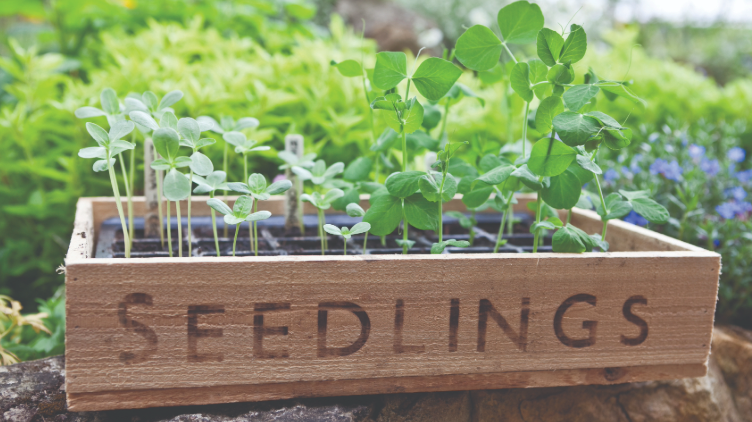
Sow and Grow - Starting From Seed
18 Aug, 2025
Sow
In Seed Trays
Fill your seed tray with organic seed-raising mix and moisten the soil before sowing. Check the seed packet for specific planting requirements — some seeds need to be sown into shallow trenches, while others are best lightly sprinkled on the surface. Cover with a thin layer of mix and gently press down to ensure good contact between the seed and the soil. Keep the tray in a warm, welllit location, away from sudden drops in temperature at night. If sowing outdoors, choose a sunny, sheltered spot. Gradually increase the amount of time your trays spend outdoors, depending on the season. This process, known as ‘hardening off’, allows young plants to slowly adapt to outdoor conditions. These steps will help your seedlings transition successfully into garden beds or pots — just be sure to protect them from any early spring frosts!
In the Ground
Prepare the soil by forking in Kings Organic Compost, then rake it to form a fine seedbed. Sow seeds according to the packet instructions and lightly rake over with the remaining soil. Water gently. Some seeds, like beans and peas, are best sown in rows to support vertical growth on a trellis. Root crops such as carrots, beetroot, and parsnips should also be sown in lines, while corn benefits from being planted in blocks to improve wind pollination later in the season.
Care
Watering
Water regularly and never allow the soil to dry out. If growing in trays, use a hand sprayer to moisten the mix and gently mist the emerging seedlings. In the garden, a hose on a gentle sprinkle setting works well. Keep the water pressure low and angle the nozzle upwards to avoid disturbing the soil. Heavy watering can displace germinating seeds and damage young roots. During spring and early summer, most seeds require daily watering, ideally in the morning, to prevent moisture loss from the heat of the sun.
Feeding
Once your seedlings have developed at least two pairs of ‘true leaves’, you can begin feeding them with Kings Liquid General Garden Food or Organic Garden Booster. Use fertiliser at half strength for young plants to avoid damaging them.
Transplanting
When transplanting, take care not to damage the developing root system. Always lift seedlings by their leaves, not the stem, which can easily snap. Gently tease apart the seedlings and plant them individually into prepared holes, slightly deeper than they were previously growing. Firm the soil gently around them. Water in well and continue feeding with a liquid fertiliser every two to three weeks.
Kings Top Tip
Some of our top seeds for sowing in winter include lettuce, onions, peas, broccoli, and beetroot. Not all seeds can be sown year-round., so always check the back of the seed packet to ensure you're sowing at the right time for your region and season.